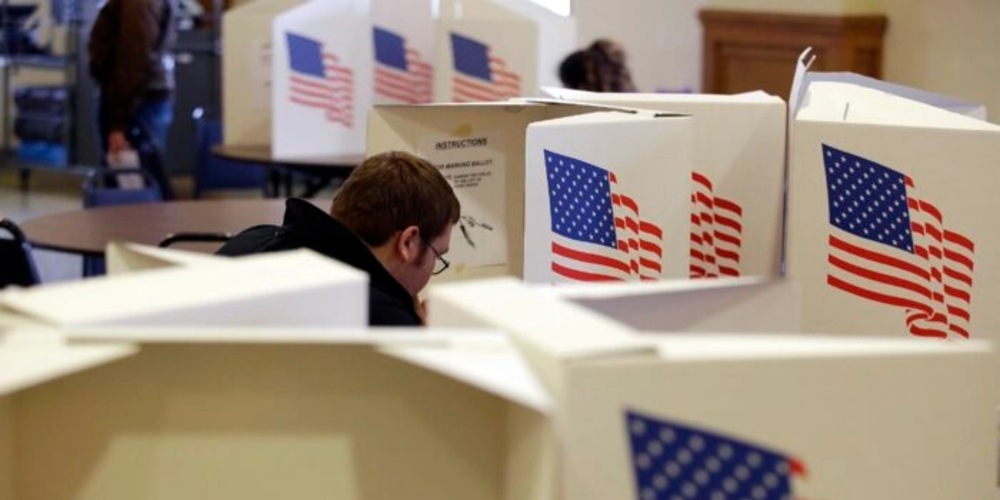(The Epoch Times)—A federal judge ruled on Sunday that Iowa election officials may continue to follow Secretary of State Paul Pate’s directive to challenge the ballots of 2,176 registered voters who have been identified as possible noncitizens.
The ruling came as a recent Des Moines Register/Mediacom Iowa poll forecast Vice President Kamala Harris leading in Iowa by three points over former President Donald Trump, while other polling organizations estimate that Trump is still ahead in what has been a safely Republican state in recent years.
The American Civil Liberties Union (ACLU) of Iowa filed a lawsuit on behalf of four naturalized citizens on Oct. 30, alleging that Pate’s directive to check registered voters’ citizenship status violated the equal protection clause of the U.S. Constitution.
On Oct. 22, Pate directed Iowa county auditors to challenge the ballots of voters who had previously identified themselves as noncitizens to the Iowa Department of Transportation (DOT).
In its lawsuit, the ACLU argued that Pate’s list of voters whose ballots would be challenged was based on outdated DOT records, and that many of those listed have already been proven to be citizens.
It alleged that the secretary’s directive places “severe burdens” on the voting rights of the affected voters by keeping the list secret, which it said could undermine their ability to resolve their eligibility.
Which crypto-backed IRA is best?
– BlockTrust IRA is ideal for managed accounts.
– iTrustCapital is for buy and hold.
Pate responded that voters will be allowed to cast a provisional ballot instead, which will be counted if they can prove their citizenship.
U.S. District Judge Stephen Locher declined to grant a preliminary injunction, citing the finding that “some portion” of the registered voter names on Pate’s list have indeed been confirmed to be non-citizens.
“This portion appears to be relatively small—no more than 12 percent—but, still, the injunctive relief requested by Plaintiffs effectively would force local election officials to permit those individuals to vote,” Locher stated in a Nov. 3 ruling.
The plaintiffs had argued that Pate’s directive violates the National Voter Registration Act (NVRA), which requires that states complete any program for removing ineligible voters within 90 days before an election.
However, Locher ruled that the NVRA was not implicated in this case because the state had not removed any voters from the voter rolls, and was only requiring them to cast provisional ballots.
“Secretary Pate’s letter is likely to impose a modest additional burden on at least some voters who should not have to bear that burden. All the same, those voters are still permitted to vote and have their ballots counted. The harm is therefore not irreparable,” the judge stated.
Pate last week had blamed the federal government for blocking his office from meeting the 90-day rule, saying that the audit was delayed to October by a lack of cooperation by the Department of Transport, which did not grant access to the U.S. Citizenship and Immigration Services’ Systematic Alien Verification for Entitlements (SAVE) database for confirming citizenship.
In a statement, Pate hailed the court’s ruling as a “win for Iowa’s election integrity,” emphasizing the importance of ensuring that only eligible voters can participate in Iowa’s election process.
He said that his office would continue to seek clarity on the citizenship status of voters who had previously self-reported to be noncitizens, while urging the U.S. Citizenship and Immigration Services office to allow the Iowa field office to release information about those voters.
Iowa Attorney General Brenna Bird stated on X that the ruling ensured that Iowans’ votes will not be canceled out by illegal votes.
“I was glad to lead the fight in court to defend Iowa’s long-standing election integrity laws. Only American citizens can vote in Iowa elections,” she said in a statement.
The Epoch Times has reached out to the ACLU for comment but did not hear back by publication time.
“Beef Steak” – our most popular survival beef product – is on sale now.
Promo code “steak40” at checkout for 40% off!


